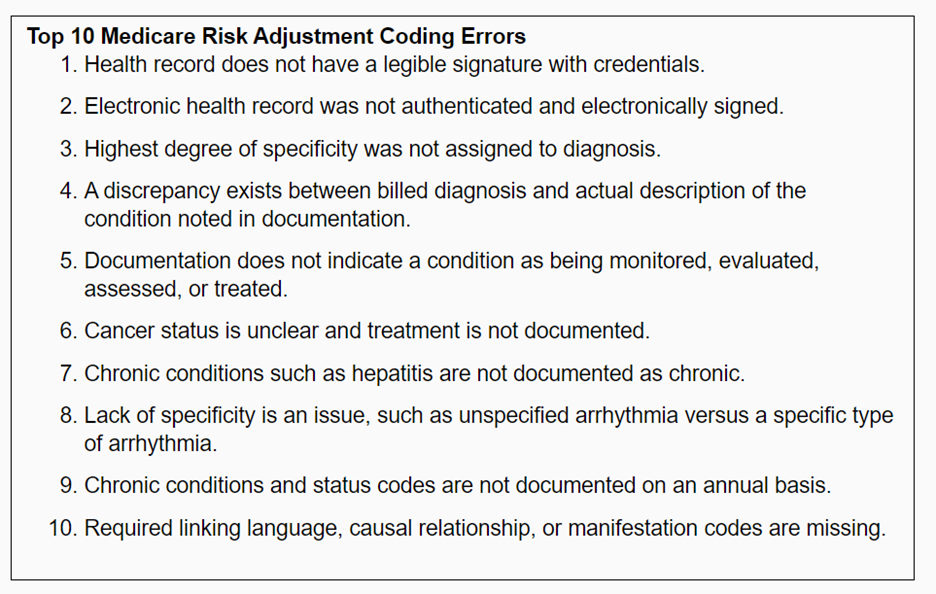What is an HCC?
An HCC is a Hierarchical Condition Category which is used to calculate risk scores that may predict the future cost of healthcare for enrollees. HCCs were implemented by the Centers for Medicare and Medicaid (CMS) and have been adopted by Medicare Advantage Plans. Medicare Advantage Plans engage in prospective reviews to ensure accurate coding and payments. HCCs are used to ensure payers are properly compensated for the overall cost of care for each member.[1]
Accurate HCCs involve using the CMS-HCC model to determine the appropriate diagnosis codes. It is important for plans to review and make sure the appropriate HCC category is supported in the records and accurately reported to CMS. The Office of the Inspector General (OIG) found that 12 health conditions drove billions in risk-adjusted payments for 20 Medicare Advantage companies.[2] One of those health conditions included Diabetes with Chronic Complications which is represented by HCC 018.
Examples of ICD-10 codes included in HCC 018 are E08.21 (Diabetes mellitus due to underlying condition with diabetic nephropathy) and E13.65 (Other specified diabetes mellitus with hyperglycemia). HCC 019 (Diabetes without Complication) examples include ICD-10 codes such as E08.9 (Diabetes mellitus due to underlying condition without complications) and E10.9 (Type 1 diabetes mellitus without complications).[3]
What to look for?
According to AHIMA, the top 10 Medicare Risk Adjustment Errors are [4]:

Plans can monitor specific HCCs of concern such as Diabetes by looking for
- Providers billing for more patients in HCC 018 vs. HCC 019
- Reviewing data submitted to CMS and ensuring it’s accurate
AI and Alerts
Healthcare Fraud Shield monitors several HCCs that can be identified using both Artificial Intelligence models in AIShield and alerts in PostShield. One example of a PostShield alert is:
[3066-20] – UPCODING, HCC 018, DIABETES WITH CHRONIC COMPLICATIONS
If you have questions or comments you may email us at [email protected].
References:
[1,4] https://bok.ahima.org/doc?oid=302154#.ZFkPUXbMI2w
[2] https://oig.hhs.gov/oei/reports/OEI-03-17-00474.pdf
[3] https://www.cms.gov/Medicare/Health-Plans/MedicareAdvtgSpecRateStats/Risk-Adjustors

